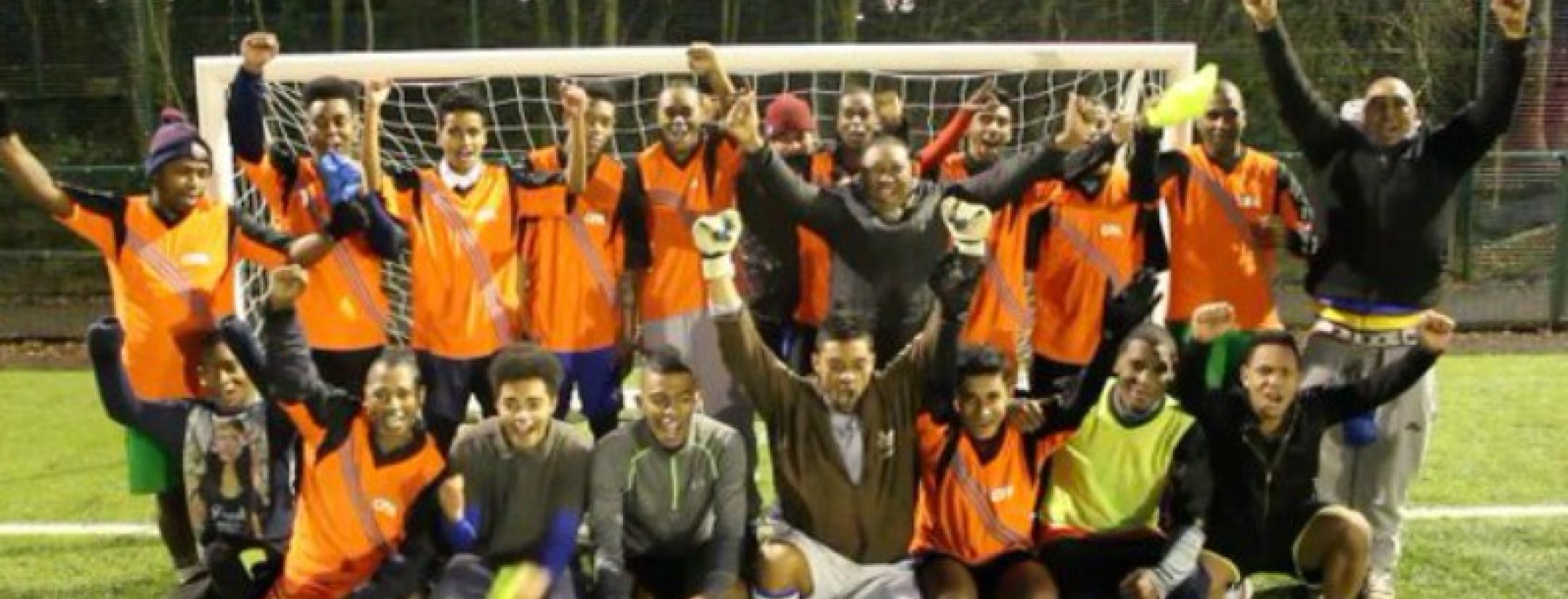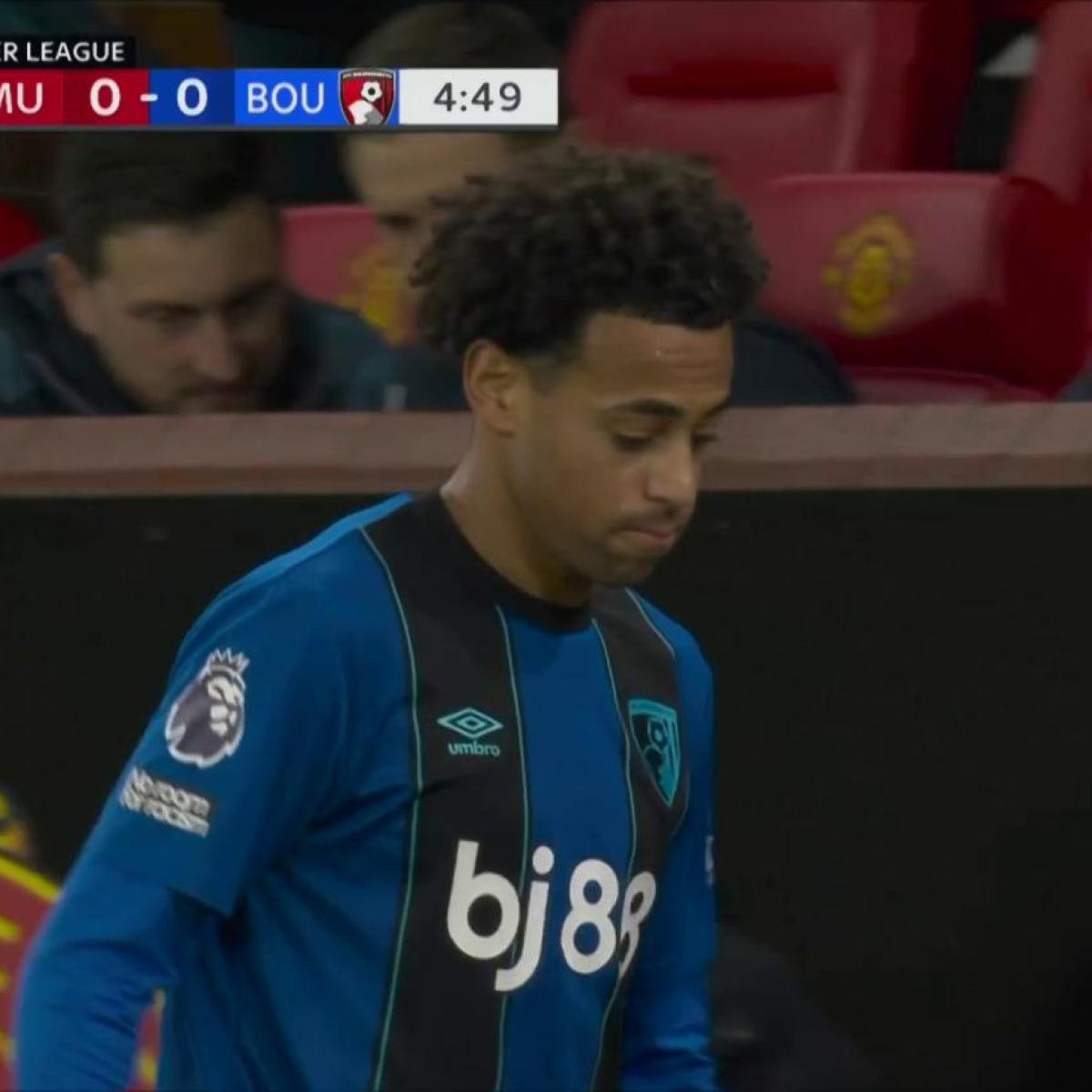The Chagos Islands National Team have started an IndieGoGo campaign to help fund their team's trip to the ConIFA World Cup. The ConIFA World Cup is a tournament that allows non-FIFA recognized or exiled nations the chance to compete for a global prize.
Along with the Chagos Islands, the likes of Kurdistan, Northern Cyprus and other disputed nations are set to take part in this year's edition, which will take place in the semi-recognized region of Abkhazia, near Georgia.
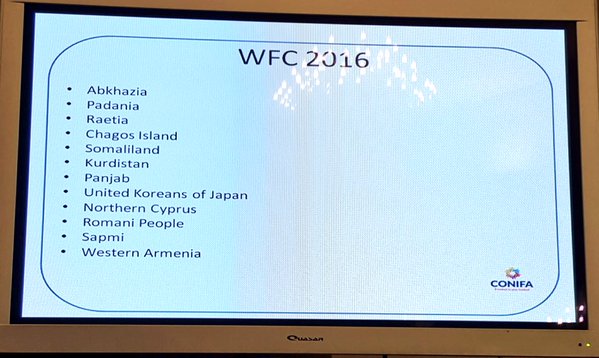
ConIFA roster. Photo: @PanjabFA | Twitter
The Chagos Islands are a series of atolls, islands and reefs that are located in the Indian Ocean, and were once a colony of the British Empire, who acquired it from France after the Napoleonic Wars. In 1966, the fevered paranoia during the Cold War prompted the U.S.A to buy the islands from Britain for the purpose of building a military base.
The U.S. built the base on the largest atoll, Diego Garcia. Since then, it has been an important strategic point for the U.S., especially during the wars in Afghanistan and Iraq, and it is allegedly the main shuttling point for CIA terrorist extraditions.
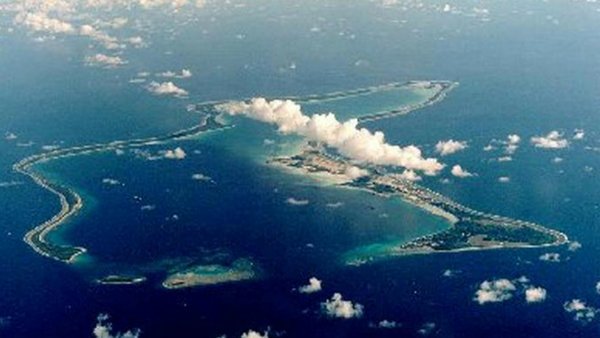
Diego Garcia Atoll. Photo: @BBCRadio2 | Twitter
However, the sale of the region was anything but clean. Over 2,000 Chagossian people were forcibly removed and shipped to Mauritius and the Seychelles. Their dogs, who they taught to catch fish, were rounded up and gassed to death by the British government.
The Chagossians, who were largely illiterate, were constrained to slums in their new surroundings and lived largely in abject poverty. Some made it to Britain, but the struggles continued for them there. In a piece for The Guardian, Mylene Augustin outlined her initial struggles.
"When we arrived, we had nowhere to go so we stayed at Gatwick airport for a week sleeping on chairs or the floor and surviving on donations from other travellers. Then we were taken by a Chagossian to Crawley, where we stayed in temporary accommodation while we looked for work. But with no fixed address it was very hard to find a job."
The town of Crawley, which lies south of London, has become a hub for the Chagos Islander community. It is here that the Chagos Islands national team plays their soccer on a shoe-string budget. For those in the community, the soccer team is a source of cultural identity and a way to honor their motherland.
"We have kept the Chagos Island identity alive through our shared love of football." says midfielder Ricky Louis.
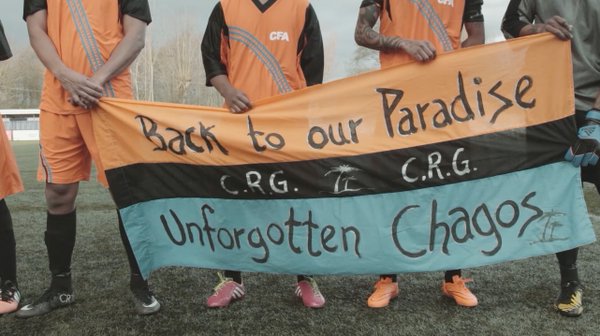
Photo: @ThatDamnYank | Twitter
For 50 years, those that were exiled from Chagos have fought for their right to return, something that Augustin also details in her piece.
"—for all of us here — whether younger or older generation — we will not give up our right to return to our Chagos home. My father’s dying wish was to die in his birthplace. It breaks my heart that he said to me: 'Burn me and put my ashes in the sea so they will go back to Diego Garcia one day.'”
Despite two court cases that sided with the Chagossians, the British government continued to put up roadblocks to any possibility of return. To make matters worse, the U.S. government has continually refused to entertain any notion of their involvement.
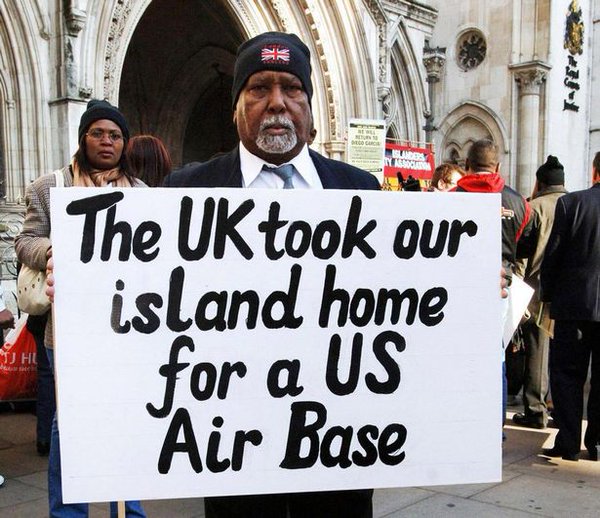
Photo: @EmpireExposed | Twitter
The U.S. has said that resettlement of the islanders would pose a security risk, and otherwise have generally ignored the issue for the last 40 years. According to the Chagos Refugees Group, a petition of 30,000 signatures was sent to President Barack Obama asking him to recognize the wrongs committed against the Chagossian people, but it fell on deaf ears. The issue has only been addressed once in Congress, and that was in 1975.
Now, the initial 50-year agreement for the lease of Diego Garcia is approaching its expiration. While there is an automatic 20-year renewal in the agreement, the end of the initial lease has brought the issue to the foreground again. The plight of these people has gained worldwide notoriety, and this could very well be a pivotal moment in time for their pursuit of justice.
For the Chagos Islands national team, the ConIFA World Cup represents not only an opportunity to win something for their community, but also a chance to represent their homeland. It is a chance to bring attention to their plight, and to stand proudly for their identity which colonial ambition almost stripped away from them. In the words of Ricky Louis"
"We cannot return to our islands but we can return a trophy to our community."
Cheer Chagos from Ben Davies on Vimeo.
To support the Chagos national team, click here.
To learn more about the Chagos issue, click here.
Follow me on Twitter @J_Hansen_89
